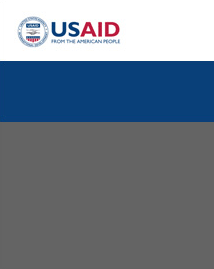Speeches Shim
From the child survival revolution of the mid-1980s through the end of the Millennium Development Goals era in 2015, the Child Survival and Health Grants Program (CSHGP), funded by the United States Agency for International Development (USAID), has played a foundational role in global and national efforts to achieve a vision of “health for all.”* Focusing on primary health care is a means to reach goals in health—including reduced mortality and morbidity through improved health and nutrition status and equity—in resource-constrained settings.† Established in 1985 as part of USAID’s investment in the Child Survival Initiative with a congressional earmark, the CSHGP’s multifaceted partnership leveraged and strengthened the work of international nongovernmental organizations (INGOs)‡ and their local and national partners to improve the health and well-being of vulnerable populations in developing countries. CSHGP-supported INGOs improved coverage of evidence-based interventions, broadening these over time to include maternal, newborn, and child health (MNCH) and infectious diseases in response to epidemiological and demographic shifts.
The CSHGP was the largest USAID-NGO partnership for health and the second largest such partnership in the USAID portfolio (see list of all NGO partners in acknowledgements). The CSHGP mobilized US citizens, national and local governments, civil society organizations, and communities in 65 countries. Participation of communities as valued partners of governments and health systems actors—in a global and national investment landscape in which community health remains undervalued and underfunded—drove its impact within countries and globally. The program operationalized the vision of “health for all” by strengthening systems for primary health care by engaging, empowering, and linking communities with the system.§ The CSHGP empowered families and communities to make informed decisions about their health by improving health literacy and engaging community members as resources to strengthen health systems. For three decades, the CSHGP’s INGO partners pioneered the field of community health by developing global public goods (data and evidence, state-of-the-art technical resources) and supporting governments to shape country plans and priorities. The CSHGP’s INGO partners remain valued allies of country governments, national and local nongovernmental actors, and communities in advocating for and building local capacity to operationalize diverse roles of communities, supported by systems and policies.


Comment
Make a general inquiry or suggest an improvement.